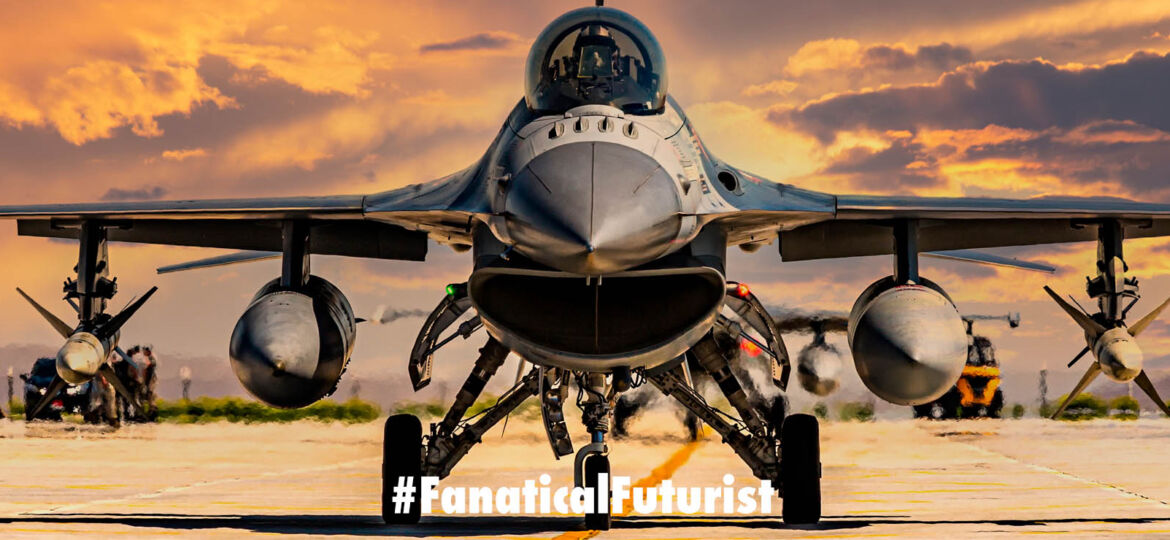
WHY THIS MATTERS IN BRIEF
By testing its first AI pilot in real planes the US could suddenly field thousands of old grounded planes in battle to regain overmatch against their opponents.
 Love the Exponential Future? Join our XPotential Community, future proof yourself with courses from XPotential University, read about exponential tech and trends, connect, watch a keynote, or browse my blog.
Love the Exponential Future? Join our XPotential Community, future proof yourself with courses from XPotential University, read about exponential tech and trends, connect, watch a keynote, or browse my blog.
After years of watching Artificial Intelligence (AI) thrash human pilots in simulated battles and saying that one day an AI will fly and control a real fighter jet, rather than just be a co-pilot in one, one has, and in this case it controlled a USAF F-16 fighter jet in dogfights against other aircraft in tests.
The series of AI powered flights took place in December 2022 but have just been revealed by DARPA, the research and development branch of the US Department of Defense.
The Future of War, on the FanaticalFuturist Podcast
DARPA has previously tested AI control of jets on a simulator as part of its Air Combat Evolution programme. That research has now progressed to using a modified F-16 fighter jet, a common but ageing part of the US military’s air fleet.
This jet, known as the X-62A, flew from the Air Force Test Pilot School at Edwards Air Force Base, California, several times during a single week. Several different AI algorithms were tested, attempting take-offs, landings and using simulated weapons in aerial battles, but a human pilot was always on board in case of emergency.
Autonomous military aircraft are being researched by countries around the world because they can be used in dangerous situations without risk to human life – at least on the aggressor’s side – and can operate at G-Forces that would incapacitate or kill a human pilot.
Notable as the latest announcement might be, Kenneth Payne at King’s College London says that the tests are of questionable importance in the overall progress of autonomous vehicles.
“There’s relatively not a lot of complexity. In some respects, dare one say, it’s easier as a challenge than autonomous cars,” says Payne. “Because with autonomous cars, you’re in a complex environment, especially if you’re in a European city; it’s raining, there’s narrow streets, but most importantly, there’s plenty of other humans around as well. A lot of these problems are stripped back in aerial combat.”
Having AIs control combat also raises ethical issues about whether an algorithm can make the right decisions in complex scenarios with high stakes, says Payne. But given that many countries are working on such technology, the competitive pressure means that AI warplanes are likely to be developed, and potentially used, regardless of whether one country has qualms about the idea, he says.

















[…] open to it,” Tseng explained. “But they want AI-piloted jets, and that’s what they’re focused on before they start thinking about how those AI-piloted jets […]